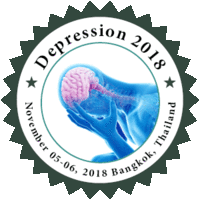
Joseph Rosado
Medical Director, Medical Cannabis Clinic, USA
Title: PTSD OR Clinical Endocannabinoid Deficiency?
Biography
Biography: Joseph Rosado
Abstract
Posttraumatic stress disorder (PTSD) is a prevalent, chronic, and disabling depression and anxiety disorder that may develop following exposure to a traumatic event.
Although the use of Medical Cannabis for the treatment of physical and psychological disorders is controversial, medical marijuana is currently legal in Canada, 30 states in the United States and a handful of countries in South America.
Studies published in Molecular Psychiatry and Science Daily showed that treatment using particular compounds found in marijuana may benefit those with PTSD, and that “plant-derived cannabinoids [psychoactive chemicals] such as marijuana may possess some benefits in individuals with PTSD by helping relieve haunting nightmares and other symptoms of PTSD” and As a result of taking medical marijuana, participants reported a decrease in re-experiencing the trauma, less avoidance of situations that reminded them of the trauma, and a decline in hyper-arousal, respectively.
There’s also convincing evidence from multiple studies for reduced endocannabinoid availability in PTSD, i.e., reduced levels of the endocannabinoid anandamide and compensatory increase of CB1 receptor availability in PTSD, and an association between increased CB1 receptor availability in the amygdala and abnormal threat processing, as well as increased severity of hyperarousal, but not dysphoric symptomatology, in trauma survivors.
This presentation will be a literature review supporting the theory of clinical endocannabinoid deficiency and a review on how to treat PTSD with medical cannabis.

